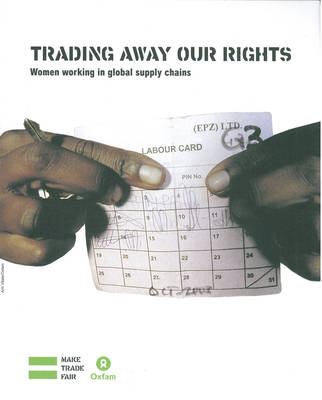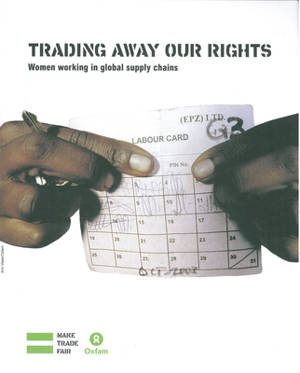
- Afhalen na 1 uur in een winkel met voorraad
- Gratis thuislevering in België vanaf € 30
- Ruim aanbod met 7 miljoen producten
- Afhalen na 1 uur in een winkel met voorraad
- Gratis thuislevering in België vanaf € 30
- Ruim aanbod met 7 miljoen producten
Zoeken
Omschrijving
Globalisation and trade have drawn millions of women in developing countries into paid work. Their labour is contributing to rising global prosperity and the profits of some of the world's most powerful companies. But women workers are systematically being denied their fair share of the benefits from their labour. Failure to address this injustice will perpetuate a model of globalisation that is failing poor people. This report reveals the double standards at the heart of the corporate practices that are emerging under globalisation. Companies' demands for faster, more flexible, and cheaper production in their supply chains are undermining the very labour standards that they claim to be promoting. Women workers - and their families - pay the price. Many face insecure contracts, intense production pressure, and intimidation in the workplace. Governments, competing to attract investment and boost exports, have too often exacerbated the problem. Instead of strengthening protection for labour rights, they have simply traded them away.
Alleen bij Standaard Boekhandel
+ 43 punten op je klantenkaart van Standaard Boekhandel
Beoordelingen
We publiceren alleen reviews die voldoen aan de voorwaarden voor reviews. Bekijk onze voorwaarden voor reviews.












